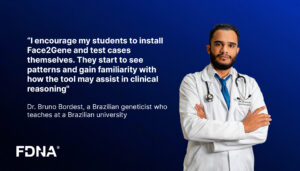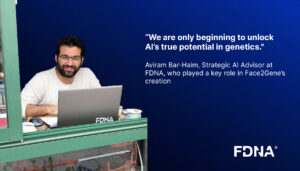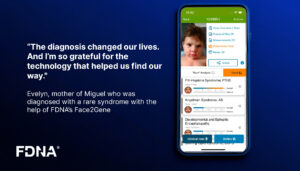Call for Research Proposals issued at the American Association of Human Genetics annual meeting ASHG2015
Boston, MA (PRweb) October 5th, 2015 – “FDNA, a pioneer in computer-aided dysmorphology analysis, invites geneticists from around the world to join the second cycle of the “GIVE A FACE TO A SYNDROME” research program. The date of the release coincides with the American Association of Human Genetics annual meeting, ASHG 2015, in Baltimore, MD, where attendees can receive more details at booth #915.
The Facial Dysmorphology Novel Analysis (FDNA®) technology, powering Face2Gene, a neurogenetic search and reference solution that facilitates detection of facial dysmorphic features and recognizable patterns of human malformations to present comprehensive and up-to-date neurogenetic references will also be the center of this research program. Taking part in the GIVE A FACE TO A SYNDROME program enables geneticist to use the FDNA technology for free, to leverage the support of a dedicated research team and to utilize FDNA’s tens of thousands of dysmorphology related data‐points.”
Applicants are invited to submit proposals in this link www.FDNA.com/Cycle2


